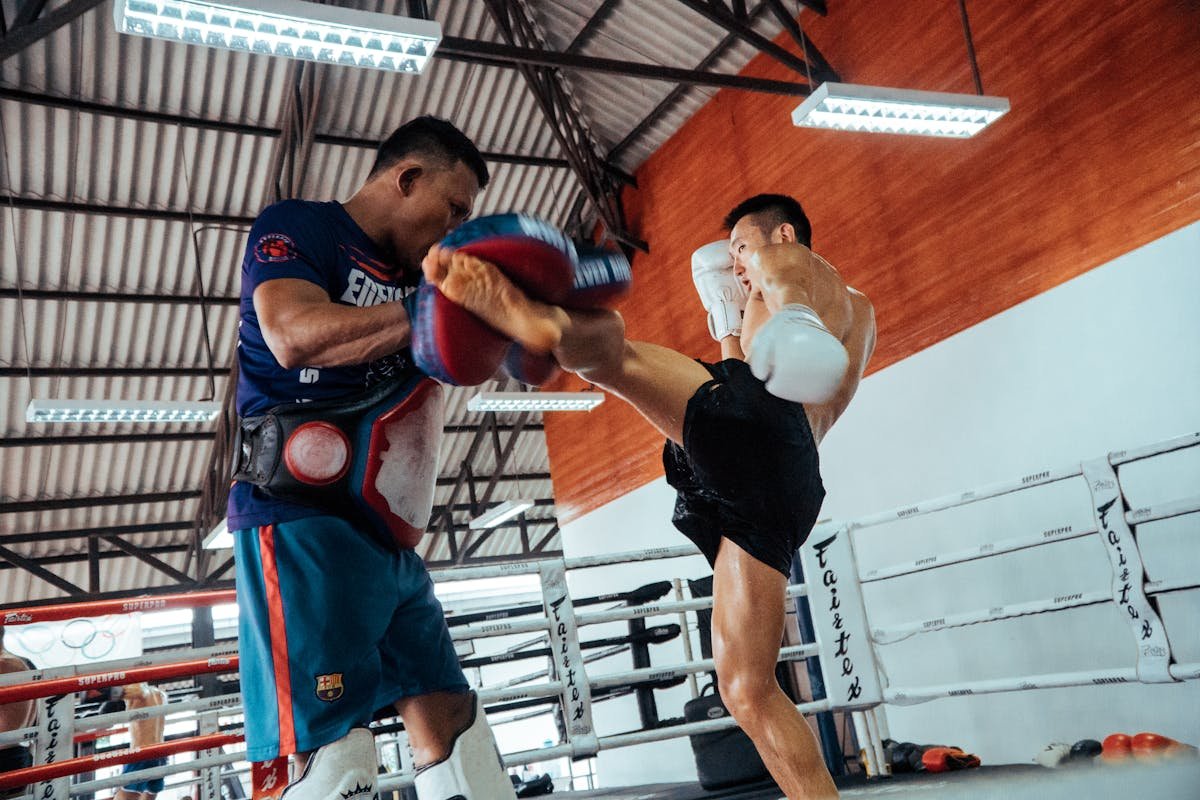Having a tight algorithm of work, a series of engagements and the involvement in so many Does this sound like a highly stressful working routine! life You keep saying that it is bad for your overall quality of life and so Are searching for some ways of dealing with the overwork and protecting your mind and body Well, The advantages of martial arts are many! And they can support it all
Nowadays there are people who are in search for substitutes that suit their likes and require physical activities and good mental health. If basketball or soccer is out of the picture for you, wrestling could be a good turn for you.
Want to find out how these activities can help you feel better? Then keep reading and learn about the main advantages of martial arts!
Table of Contents
What are martial arts?
Martial arts can be defined as practices that use the combination of body and mind to enable a practitioner to defend themselves physically and mentally from adverse situations. In addition to teaching technical moves, masters spread philosophies, teachings and lessons so that students can evolve spiritually.
The main difference between martial arts and more combative fights is that the purpose of martial arts is not the confrontation itself. Its objectives revolve around strengthening the practitioner so that he knows how to face the adversities that arise wisely . To do this, the body, mind and spirit are worked on.
Thus, a good practitioner learns how to defend himself in any situation, but, most importantly, how to avoid any combat as much as possible. After all, his philosophy is based on discipline and self-control, as well as respect and hierarchy.
In the past, these arts were used among Eastern peoples in combat. However, with the advancement of technology, they ended up being left aside a little. Thus, what was a war technique became a philosophy of life to find more harmony and peace of mind .
What are the benefits of martial arts?
Do you want to understand how these activities can add value to your life, providing more health and well-being? Then, follow the next topics and find out what martial arts are for!
1. Improve motor coordination
One of the first major benefits of practicing martial arts is an improvement in your motor coordination, especially if you consider yourself to be a somewhat clumsy person. Although we believe that lack of coordination is something unchangeable, it is not.
Our movement skills can be trained , and fighting is a great way to do this. You will learn how to execute different movements, how to string together punches, and how to activate muscles that you may not even know exist in your body.
2. Reduce stress
Stress is a natural response of our body to the different situations we face during the day. It puts us on alert and gives us an extra boost to overcome challenging moments.
The problem is when our body is constantly in this state and does not release this energy, which causes problems such as hypertension and irritability . Therefore, practicing martial arts can also be considered a matter of self-care .
Fights are intense and require physical effort, helping to burn off your energy. In addition, you need to pay attention to your movements at all times, which also takes your focus away from the problems and stresses of the day.
3. They improve quality of life
Sharpening the body through exercise will always boost health. Hence one of the benefits that martial arts offers is the better quality of life. After all, among other things, you are taking care of your body, improving your physical fitness, engaging muscles, and strengthening joints.
In the long run, this translates into more energy, vitality and stamina . You will also notice that you will be more physically able to do everything you need to do, whether it is enjoying your youth or enjoying a more independent old age.
4. Promote more self-confidence
One of the reasons martial arts help you gain self-confidence is that you acquire a new skill. As you learn the moves and progress through the stages, you become more committed and confident in your ability to advance .
In addition, your body tends to get fitter, you avoid being overweight and strengthen your muscles, something that can significantly affect your self-esteem . Not to mention the commitment you develop to your own well-being and self-care.
5. Develop a sense of discipline
You probably already know that martial arts are based on life philosophies. In addition to physical movements and strikes to apply to your opponent, you need to learn to control your mind . This also strengthens your sense of discipline.
Martial arts also respect a strict hierarchy, which must be incorporated into your life. This means that you learn to control your ego, the urge to react to everything and the anger that builds up not only on the mat, but everywhere else.
How does this type of exercise contribute to well-being?
Just like alternative medicine , martial arts are a way of working on aspects of human well-being that go beyond physical factors . Therefore, they integrate body, mind and spirit in an attempt to create a better quality of life, with more calm , more patience and more integrity for a person.
When you start practicing any type of martial art, you don’t just learn about body movements, strength, and strategy. You also begin to immerse yourself in various moral lessons that can be applied to your daily life.
An example of this is the state of full presence, used in all martial arts approaches. Therefore, the first teachings transferred involve issues such as discipline, self-control, hierarchy, respect and humility.
Only with these attributes can a practitioner receive lessons from his master, practice until he becomes mentally and physically stronger and advance through the levels. With dedication, recurring practices can lead you to competitions in the sport or even put you in the position of master to disseminate knowledge.
While this is happening, you will tend to notice subtle changes in your behavior and, especially, in your mentality outside the mat, such as:
- patience when dealing with people with a different pace than yours;
- tolerance of positions and opinions that differ from yours;
- respect for other people’s journey and knowledge;
- calm to deal with unforeseen events and situations that “went wrong”;
also read: Anxiety at work? Know 5 signs and how to treat them








